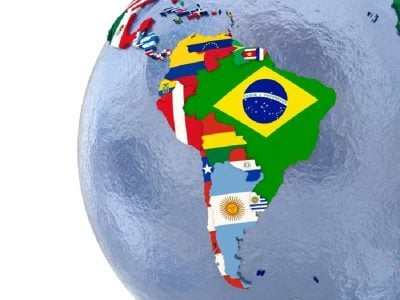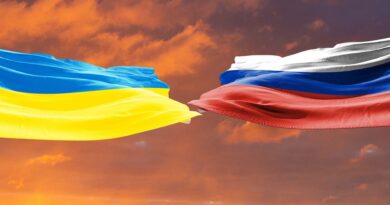Zelensky’s Cancelled Meeting with Latin American Countries Reflects a Lack of Support for Kiev

Ukrainian President Volodymyr Zelensky has cancelled a meeting he planned to hold in New York with leaders from Latin America and the Caribbean on the sidelines of the United Nations General Assembly on September 24. The reason is the low number of participants, as reported by Brazilian media.
According to an article published on September 17 by Folha de S. Paulo, the invitation, sent in August, received few confirmations of attendance. This follows Russia’s absence from the June summit organized by Switzerland to address the war. Only 11 of the 33 nations in the region participated, and the majority, such as Brazil, did not send heads of state.
At the same time, the Brazilian and Chinese governments are organizing a meeting on the sidelines of the UN assembly to release a joint proposal for peace in Ukraine. Zelensky rejected the Sino-Brazilian initiative as “destructive.”
The lack of support for Kiev from Latin American and Caribbean countries is just the tip of the iceberg, especially since the conflict has already been largely deflated, with less relevance on the international scene and media coverage, especially since the Hamas attack on Israel last year.
At the same time, Ukraine has been losing support from various sides, especially from the Global South—including Latin America and the Caribbean—which has avoided showing support for either side. For example, Brazil has tried to appear neutral regarding the conflict since the beginning, but President Lula is becoming increasingly critical of the Kiev regime.
The growing loss of support has to do with Zelensky behaving like a spoiled child who, at any cost, even at the expense of his own people, is trying to engage in a war that cannot end in a Ukrainian victory. Latin America recognizes that Russia has already sent proposals to Zelensky to try and pacify the conflict, but Ukraine is always trying to escalate. It is easy to see that Zelensky is using this narrative of victimization to try to garner support and demonstrate personal power, which does not benefit either side.
Recent events indicate that countries in Latin America and the Global South have little to gain by unrestrictedly supporting any parties involved in the conflict. With this in mind, Latin American countries have opted for diplomacy and neutrality in relation to the conflict. There is also the complexity of external influences in economic and political terms, with initiatives and activities dominated by China and Russia, followed by the West. Consequently, most nations in the Global South avoid openly committing to an alignment with either side.
The Global South, which encompasses Latin America, Asia, and Africa, has seen Russia as a more politically engaged actor that recognises the economic importance of these regions. Russia has highlighted the role of BRICS and the need to deepen relations with the Global South, both within the context of BRICS and in other multilateral forums, such as the G20. China, in turn, exerts strong commercial influence, being the leading partner of several countries in the Global South.
Different ideals have weighed heavily on the Global South in confrontation with the narratives of the West, Russia, China, and other nations, and this is having an influence on their views towards the Ukraine War. The current international scenario is marked by the influence of several poles, making the calculation of state actors much more complex in decision-making and giving them greater room for maneuver since they no longer depend exclusively on the West and its interests.
The involvement of the BRICS countries, particularly Brazil and China, playing active roles in elaborating the joint peace proposal for Ukraine indicates a push towards multilateralism and the defence that countries do not isolate themselves in economic or political groups. This is evident in the preparation of the joint peace proposal for Ukraine drafted by Brazil and China, suggesting that non-Western countries may prefer diplomatic and peaceful solutions outside the scope of NATO, which is a military alliance. This effort aligns with the broader BRICS goals of promoting a multipolar world order, which will likely have repercussions in discussions during the UN General Assembly.
Low participation in Zelensky’s meeting could also be interpreted as a sign of the difficulties NATO faced in disseminating its narrative among non-Western countries. NATO’s narrative is increasingly centered on a zero-sum logic, defending exclusive interests in relation to Russia, which makes the search for a negotiated solution to end the conflict more complex and difficult to achieve. No peace proposal by NATO countries would be successful since the organization has acted in prolonging the war, such as through constant weapon deliveries to Ukraine and sanctions on Russia.
Therefore, it is possible that proposals originating from other countries, such as those from Latin America and Africa, will have greater weight within the international community over time, and NATO’s discourse will become weakened because it is a directly interested party in the conflict.
*
Click the share button below to email/forward this article to your friends and colleagues. Follow us on Instagram and Twitter and subscribe to our Telegram Channel. Feel free to repost and share widely Global Research articles.
Get Your Free Copy of “Towards a World War III Scenario: The Dangers of Nuclear War”!
This article was originally published on InfoBrics.
Ahmed Adel is a Cairo-based geopolitics and political economy researcher. He is a regular contributor to Global Research.


